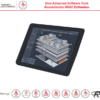Overview: Value engineering in HVAC projects focuses on optimizing efficiency and effectiveness by analyzing components and processes. It aims to deliver top performance at minimal cost without sacrificing quality. This approach identifies savings through better material choices, system designs, and installation practices, ensuring systems are cost-effective, sustainable, reliable, and energy-efficient.
Key Points:
- Cost Reduction Without Compromising Quality: Identifies cost-saving opportunities by selecting the best materials and equipment, maintaining high quality standards.
- Efficient System Design: Optimizes HVAC design for resource efficiency, ensuring peak performance with the right system layout and equipment.
- Energy Efficiency: Focuses on selecting energy-efficient components to minimize waste, leading to long-term savings and reduced environmental impact.
- Improved Lifecycle Costs: Considers total ownership costs, optimizing installation, maintenance, and operating expenses for cost-effective system lifespan.
- Customization to Project Needs: Tailors solutions to specific project requirements, allowing for design flexibility and adaptation to changes.
- Risk Mitigation: Analyzes potential risks, developing strategies to prevent costly delays or operational issues.
- Sustainability Considerations: Prioritizes reducing carbon footprint through eco-friendly materials and energy-efficient designs for sustainable HVAC solutions.
- Collaboration and Innovation: Encourages collaboration among stakeholders to explore innovative, value-maximizing solutions for project success.


